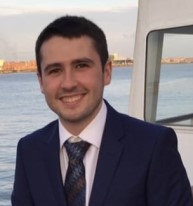Clinical NeuroID
This group focuses on the epidemiology, prevention, diagnosis, and clinical management of neurological infections and their complications and sequelae.
Researchers
Dr Abdusshakur Muhammad Auwal
NIHR Academic Clinical Fellow in Infectious Neuroscience

I am an NIHR Academic Clinical Fellow in Infection Neuroscience working towards understanding the pathophysiology of NeuroCovid using functional neuroimaging to develop therapeutic interventions under the supervision of Professor Benedict Michael, Professor Ed Bullmore, and Professor Simon Keller. My Fellowship is also in partnership with Encephalitis International. I have an evolving interest in studying the interdependence of AI and Neuroscience to understand neurological diseases better and develop treatment strategies.
I have worked as a collaborator in the COVID-19 RECOVERY Trials (2020-2021) that led to the approval of Dexamethasone and Tocilizumab for use in suitable Covid 19 patients. I was also the first author of a published abstract (2023) that looked at the characteristics of people with MS involving only the spinal cord. My MSc dissertation (2023-2024) demonstrated disruption of resting state functional connectivity in cognitively healthy young adult carriers of Alzheimer’s genes impairing amyloid beta clearance.
Dr Sylviane Defres
Honorary Associate Professor

Dr Sylviane Defres is a consultant in infectious diseases in the Tropical Infectious Diseases Unit in Liverpool University Hospitals Foundation Trust (LUHFT) where she co-leads the neurological infection clinical service as a collaboration with Walton Neuroscience NHS Trust receiving referrals nationally and internationally. She has led national studies on encephalitis, including ENCEPH-UK, a programme of interrelated studies aiming to understand and improve the outcomes of encephalitis, NAME, (National Audit Project on Management of Encephalitis) and collaborated on national meningitis guidelines, the national audit of management of meningitis (NAMM) and DEX ENCEPH, a randomised control trial on the use of steroids in HSV encephalitis. She is also principal investigator on these in LUHFT as well as a number of other CNS related studies and the P2 study (RCT on a probiotic to prevent travelers diarrhoea) in the Well Travel Clinic and Chief investigator on a brain abscess study in the regional centre. She is on guideline writing groups in the UK and in Europe including, meningitis, encephalitis, eosinophilia in returning travelers and working with colleagues in LHSTM to develop national guidance on management of schistosomiasis in returning travellers and migrants.
Dr Luis Ferreira
Honorary Clinical Fellow

I am an Infectious Diseases Registrar based at the Centro Hospitalar Universitário de Santo António in Porto, Portugal. I have been working as an Honorary Clinical Fellow at the Walton Centre and the Royal University Hospital of Liverpool, whilst also collaborating with the Brain Infection & Inflammation Group. I’m particularly interested in infections that involve our nervous system, with a specific focus on HIV, herpes simplex virus and COVID-19. Additionally, I have a strong interest in tropical infections and emerging zoonotic brain infections. Infections involving the nervous system are fascinating and vary greatly in presentation. Compared to other infectious processes, we still have a long way to go in understanding the complete pathophysiology and management in the world of neuroinfections. My goal is to enhance and perfect my clinical skills in diagnosing and managing these illnesses, through pharmacological and non-pharmacological treatments. Furthermore, I am involved in supporting the global seizure prediction modelling.
Dr Orla Hilton
Honorary Clinical Fellow

Dr Hilton is an incoming MSc student at the London School of Hygiene and Tropical Medicine, and a former academic foundation doctor in infectious diseases. Dr Hilton’s research focuses on the cerebrovascular complications of COVID-19 infection, in particular young stroke.
Stroke, defined as when a clot or a bleed reduces blood flow to certain areas of the brain, is a serious neurological complication of infection with COVID-19. Studies report between 1-2% of patients suffered from a stroke during the pandemic and on average these patients were younger compared to stroke patients who were not infected with the virus. In general, stroke in the young poses a great threat to socioeconomic stability, due to its often-disabling nature and sequelae. Thus, in this project we are seeking to understand the risk factors and outcomes of COVID-19-related stroke in younger people, and to investigate any associated brain biomarkers in these patients.
Dr Thomas Hughes
Academic Foundation Doctor

The SEIZURE Score was published in 2022 by Wood et al. in order to stratify the risk of seizure in encephalitis patients from UK cohorts. I am following up on this study with an international validation project. Invitations have been sent out to members of the Global NeuroResearch Coalition and previous authors affiliated with the Infectious Neuroscience Lab. All interested groups have been asked to complete a data sheet for their encephalitis cohorts which will be run through the existing SEIZURE scoring systems; over 1500 patients are expected to be involved from 10-15 countries. This will enable us to determine the discriminatory ability of the scoring systems in different populations with varying demographic and aetiologies to that seen within the UK. From here we can determine countries for whom the current scoring system is a useful stratification tool and the countries that would benefit from the development of a local scoring tool unique to their own populations. The end-goal of this field of research is to stratify patients by risk to begin trialling the efficacy of primary anti-epileptic prophylaxis on encephalitis patients at high risk of seizing.
Dr Rachael Matthews
Guarantors of Brain Clinical Research Fellow

I am Clinical Research Fellow at the Infection Neuroscience Lab and a Specialist Registrar in Neurology in the North West. I have been awarded a 2024 Entry Clinical Fellowship from Guarantors of Brain to develop a structural neuroimaging biomarker of objective cognitive dysfunction in patients one year after COVID-19, which will enable quantification of longitudinal recovery or progression trajectory.
Dr Stephen McKeever
NIHR Academic Clinical Fellow

I am an NIHR Academic Clinical Fellow in Neurology, currently undertaking internal medicine training at Liverpool University Hospitals NHS Foundation Trust. Within the Brain Infection and Inflammation Group, my research is focused on the neurological complications of COVID-19 infection, as well as the development of patient reported outcomes in infectious encephalitis. Previously, I worked in A&E during the COVID pandemic and have completed an MRes in Neuroscience with a research focus on anti-GAD encephalitis and neuroblastoma. I have been awarded the Peter Milner Fellowship in Biomedical Innovation which was undertaken in Silicon Valley, California and since have developed experience in drug development and an interest in drug-device combinations.
Dr Brendan Sargent
Honorary Clinical Fellow

I am an honorary clinical fellow with the University of Liverpool, and work with the COVID-CNS study to explore the effects of infectious diseases on the central nervous system and cognition. I am also a Clinical Research Fellow with the Autoimmune Psychosis Group at the Univeristy of Oxford. Here I support the SINAPPS2 and PPIP2 studies, which aim to establish the prevalence of antibody mediated psychosis, and whether immunological treatments might lead to better outcomes for these patients.
Dr Rajish Shil
Academic Clinical Fellow

I am an NIHR Academic Clinical Fellow in Neurology, based in Liverpool. I am also a specialty trainee in Neurology, based at the Walton Centre of Neurosurgery and Neurology, NHS England. I graduated from RAK Medical and Health Sciences University, United Arab Emirates in 2015, completed ACGME-I accredited Internal Medicine residency, in Abu Dhabi, and qualified as a board-certified Internist. I am a collegiate member of the Royal College of Physicians, London, and currently an honorary clinical fellow at the University of Liverpool. I am currently working on the national COVID-19 clinical neurosciences study, with a brain infections group at the University of Liverpool. My research interests include brain infections, autoimmune encephalitis, demyelinating disorders, and movement disorders.
COVID-19 can affect the brain, nerves, and mind. It can lead to brain infection, stroke, and mental health illness among other problems. We don’t know how this happens in many cases. These effects can be long-lasting and can change over time. This study looks at people admitted to hospital with COVID-19-causing brain, nerve, or mental health illness. We are reviewing their case note data to assess if their personal background, pre-existing health conditions before COVID and the clinical features have a role in their illness and in their long-term recovery in the form of any difficulties in their activities of daily living and impact on the occupation post-recovery. We are comparing with people, who gets COVID-19 without it affecting their nervous system or mind. We are assessing for features that link to more severe illness and poorer outcomes. If so, this could help target those most at risk of a poor outcome and an appropriate treatment and support could be provided by the healthcare professionals.
Dr Arina Tamborska
Honorary Clinical Fellow

I am a neurology resident and clinical researcher, currently based at the Harvard T. H. Chan School of Public Health as a Frank Knox fellow. I received MBChB with Honours with a joint Pharmacology BSc from the University of Edinburgh and have since pursued clinical academic training at King’s College London and the University of Liverpool. As an NIHR Academic Clinical Fellow with the Infection Neuroscience Lab and the Liverpool's Brain Infections Group, I was active in COVID-19 neurology research and led the UK surveillance for neurological events following vaccination. My research interests intersect neuroepidemiology, neurovascular disease and prevention of neurological disorders. Recently I secured Wellcome Trust PhD funding and I am currently preparing a project investigating vascular and infective contributions to dementia.
Dr Greta Wood
NIHR Academic Clinical Fellow

I am an NIHR Academic Clinical Fellow in Infectious Diseases working to understand how interacting biological, geographic and social factors impact TB mortality and transmission. I worked as the Clinical Research Fellow for the national COVID-19 Clinical Neuroscience Study, researching acute neurological and neuropsychiatric complications of COVID-19. I am currently studying the impact of COVID-19 on cognition, exploring clinical, biomarker and neuroimaging correlates. I am a member of the World Health Organisation Neurology and Public Health Global Forum and lead the WHO/UoL-funded Global Brain Health Clinical Exchange Platform. I work within the collaborating Global Neuro Research Coalition. My other research focuses are seizures in encephalitis and the aetiology of brain infection in low- and middle-income countries.